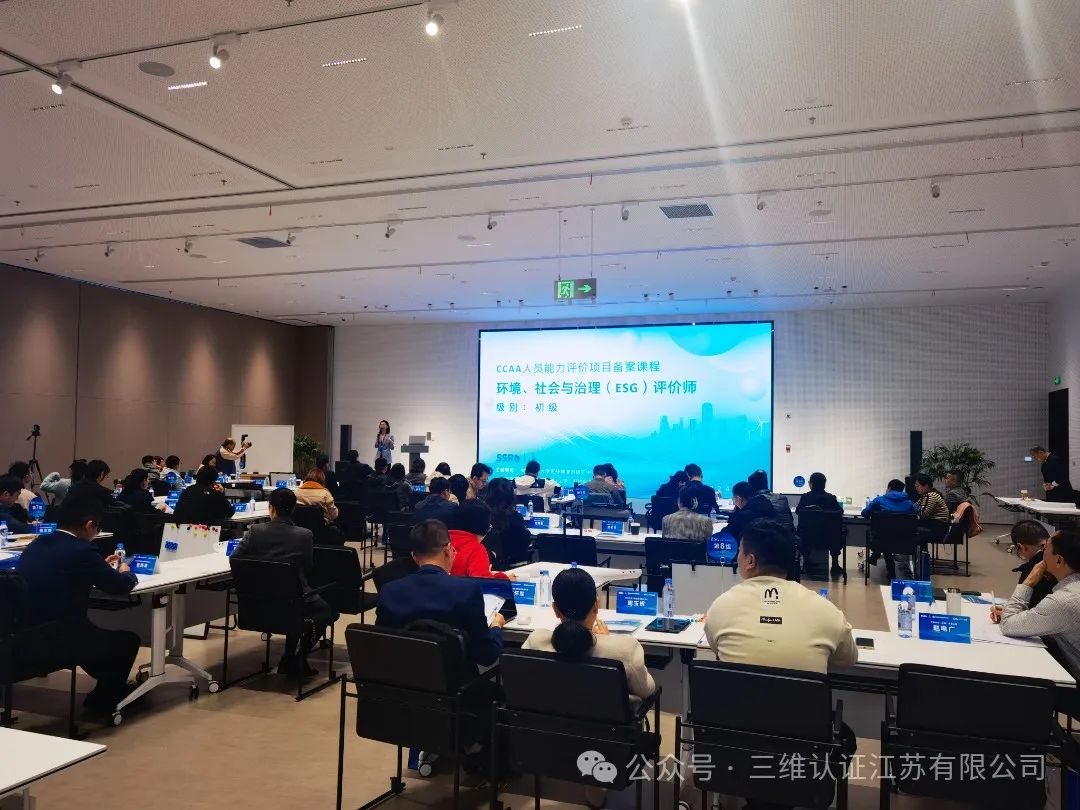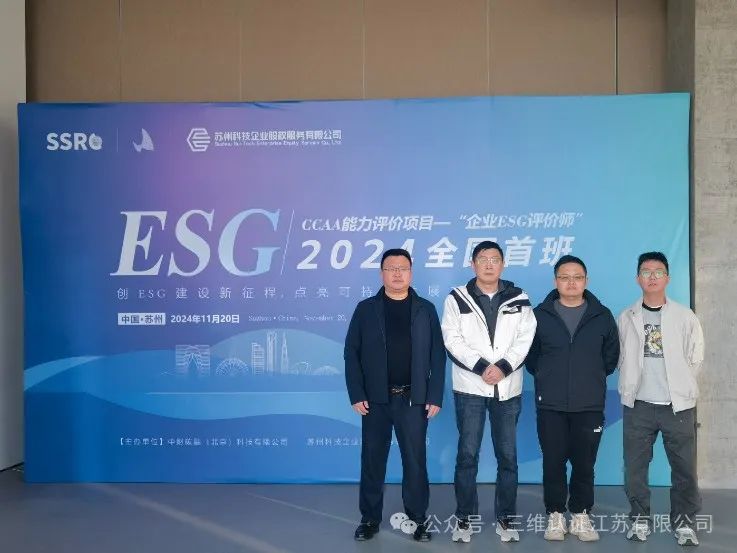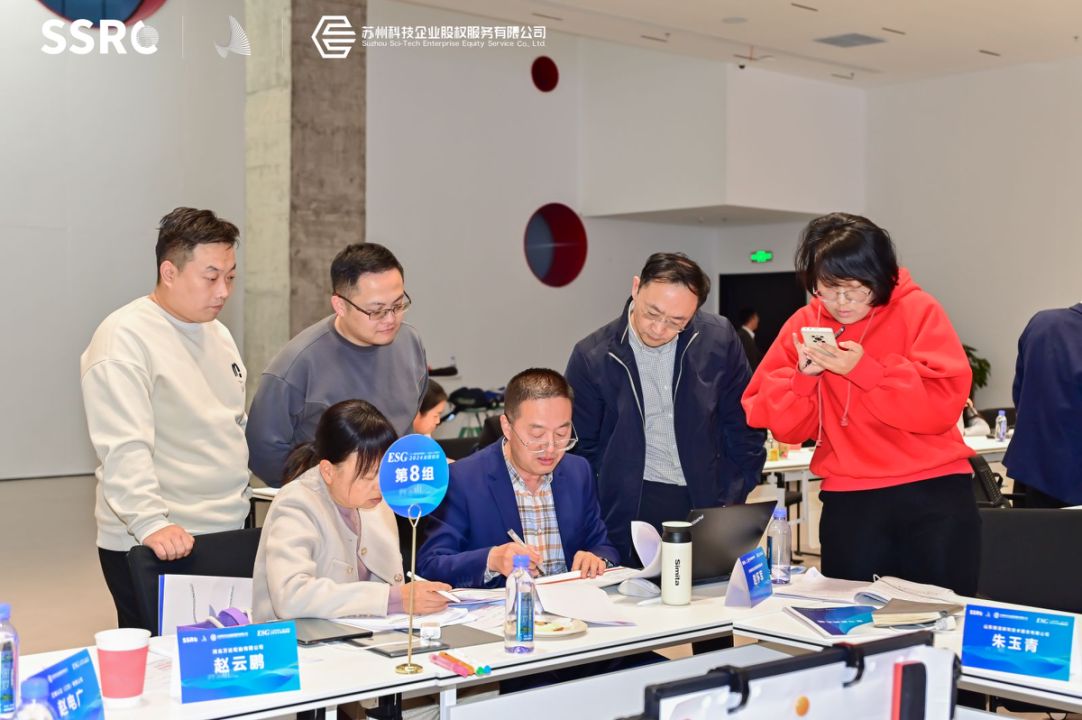2024 Early this year, the CPC Central Committee and the State Council issued the "Opinions on Comprehensively Promoting the Construction of a Beautiful China", which explicitly proposed "exploring the implementation of environmental, social, and governance (ESG) evaluations" and incorporated it into "improving the guarantee system for building a Beautiful China". The SASAC also issued relevant guidance requiring state-owned enterprises, central enterprises, and key domestic enterprises to implement ESG disclosures. The Shanghai, Shenzhen, and Beijing Stock Exchanges, based on the "Guidance for Sustainability Reporting by Listed Companies", imposed strict ESG disclosure requirements on domestic and overseas listed companies.
In the current business environment, the ESG (Environmental, Social, and Governance) concept is receiving increasing attention.
On November 20, 2024, key staff from Three-Dimensional Certification Company participated in the "Corporate ESG Evaluator" accredited course training. This holds significant importance for the company in multiple aspects. In the current business environment, the ESG (Environmental, Social, and Governance) concept is receiving increasing attention. Through this training, we can systematically learn ESG evaluation expertise and skills, including how to accurately assess enterprises' environmental protection initiatives and effectiveness, such as energy consumption management and waste reduction strategies; on the social front, understand evaluation criteria for employee rights protection, community engagement, and philanthropic activities; and in the governance dimension, master assessment methods for corporate governance structures, risk management, and compliance operations.

This will help more companies establish their own ESG management systems and enhance their ESG performance and competitiveness. When facing investors, partners, and regulators, companies can demonstrate their commitment and strength in sustainable development based on professional ESG evaluations, attracting more sustainability-focused investments and expanding cooperation opportunities. Simultaneously, they can more accurately benchmark against industry best practices, identify shortcomings, and implement improvements, thereby achieving a balance between economic and social benefits in long-term development and laying a solid foundation for sustainable prosperity.

More companies are integrating the ESG concept into their development strategies and actively engaging in ESG practices to enhance their sustainability capabilities and social responsibility. Consequently, there is a strong demand for professional evaluators who can accurately assess and guide corporate ESG work.
In the financial investment sector, investment institutions are placing increasing importance on the ESG performance of potential investees. They require ESG evaluators to accurately assess the ESG risks and opportunities associated with potential investments, enabling more informed investment decisions. This further increases market demand for ESG disclosures.
During the class, Three-Dimensional Certification staff actively participated in discussions and shared insights, receiving widespread agreement.




The ESG system comprises three aspects: ESG information disclosure, ESG evaluation, and ESG investment. Among these, ESG information disclosure serves as the foundation for conducting ESG evaluations and ESG investments.
Disclosing enterprises' implementation of ESG measures in accordance with specific standards and indicators;
Conducting scoring and rating of enterprises' ESG implementation by international or domestic ESG evaluation agencies. The process typically includes: ESG data collection (primarily from ESG information disclosures), assessment of relevant responsibility issues, scoring of key indicators, and determination of final ESG ratings;
Investors considering both financial factors and ESG factors in their investment decision-making process, giving special attention to companies with favorable ESG ratings.